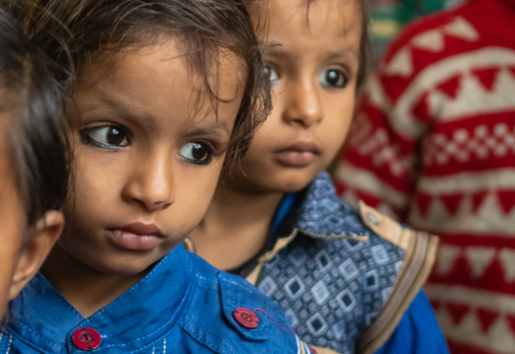Only 4% of rural SC, ST youngsters study online on a regular basis, according to the research. 83 percent of parents in these regions believe their child’s reading skills have deteriorated.

NEW DELHI: According to a survey produced by almost 100 volunteers from various non-profit organisations, just 8% of children in rural regions frequently study online among the studied population. In metropolitan regions, the situation is only somewhat better, with 24 percent of students reporting that they often study online. The report, Locked Out: Emergency Report on School Education, examines the impact of COVID-19-related school closures on elementary school students (Classes 1–8). According to the survey, the lack of smartphones in the family, cellphones being constantly with adults, bad connectivity, and a lack of money for “data” are the main reasons why children are unable to study.
According to the research, many schools in rural regions do not send kids internet learning resources. Only 51% of rural families, compared to 77% in urban regions, reported owning a smartphone in the family. In both rural and urban regions, less than 12% of children owned their own smartphone. Schools should reopen, according to 97 percent of parents in rural regions and 90 percent of parents in urban areas who responded to the study. According to the research, 37% of rural students do not study at all, and half of those who do are unable to read more than a few words. Students in rural regions reported being unable to read more than a few words 48 percent of the time, while students in urban areas reported being unable to read more than a few words 42 percent of the time.
School closure survey
The report’s study included 1,362 families and 1,362 children in grades 1 through 8. Bihar, Chandigarh, Delhi, Gujarat, Haryana, Jharkhand, Karnataka, Madhya Pradesh, Maharashtra, Odisha, Punjab, Tamil Nadu, Uttar Pradesh, and West Bengal were among the states and union territories surveyed in August 2021. According to the study, it focused on “relatively impoverished hamlets and bastis, where children usually attend government schools.” According to the research, around 60% of the sample families live in rural regions, and close to 60% belong to Dalit or Adivasi tribes.
TV broadcasts did not work
More than 75% of parents in both rural and urban regions stated their child’s reading skills have deteriorated. According to the research, television broadcasts are mostly ineffective. The research claimed, “Only 1% of rural children and 8% of urban children in our sample acknowledged TV programmes as a regular or even occasional means of learning.” Children were also not given midday meals on a regular basis, according to the report. Only 69 percent of households in urban areas and 63 percent of families in rural regions said they received mid-day meals.
COVID-19 has impacted negatively on children from Scheduled Caste and Scheduled Tribe communities, according to the study. According to the survey, just 4% of rural SC/ST children study online on a regular basis, compared to 15% of other rural youngsters. In the SC and ST communities, 55% of students did not have access to a smartphone at home. During the pandemic, 43% of children from SC and ST groups claimed they did not study at all.
Only 5% of students in these areas said they had taken online lessons other than videos, and 83 percent of parents said their child’s reading skills had deteriorated since the school closures. States have mainly chosen to postpone school reopening, and even when they have decided to resume, they have prioritised senior courses.